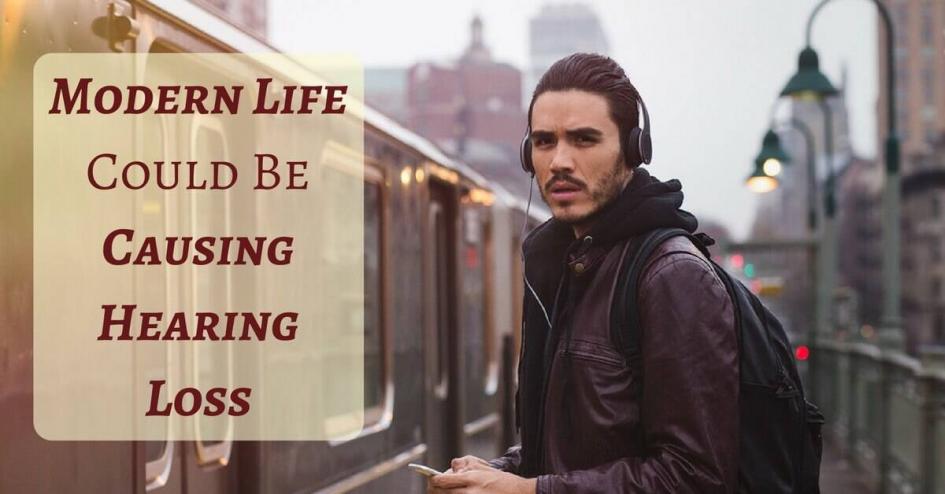
Modern Life Could Be Causing Hearing Loss
May 18, 2017
Modern Life Could Be Causing Hearing Loss
Hearing loss is often associated with aging, and for good reason: more than 70% of people over 70 experience hearing loss in the UK. One of the most common causes, however, may not be as obvious. Noise exposure is now considered the main cause of preventable hearing loss. In fact, for those living in developed countries, exposure to loud noise accounts for over a third of all cases of hearing loss. A recent study in The Lancet found that living in a noisy city increases your risk of hearing loss by an alarming 64%. Although people living in cities are most susceptible to high levels of noise, anyone working on a farm, for instance, or anywhere with loud machinery, should also be aware of the potentially damaging effects of noise. It may be alarming to learn that city life increases the risk of hearing loss but, on taking a closer look, it is actually not very surprising.Why living in a city increases the likelihood of hearing loss
Prolonged exposure to noise exceeding 85 decibels can be damaging to the ear. In addition, a one-time exposure of a minute or more to noises that reach 120 decibels or above could cause permanent damage to the ear. To put these numbers into context, an average conversation is generally about 65 decibels, whereas a passing lorry or motorcycle falls into the 85-100 decibel range. Noises within the 110-140 decibel range include, for instance, ambulance sirens and firecrackers. If you need to raise your voice to be heard, you are likely over the 85 decibel level. How often do you find yourself surrounded by this level of noise? If you consider the time spent commuting via public transport, or if you work in a noisy environment, it could start adding up quite quickly!Workplace noise and steps taken to reduce levels of hearing loss
The incidence of noise-induced hearing loss in the UK has decreased over the past decade, thanks to strengthening of health and safety regulations. Nevertheless, the Health and Safety Executive still estimated that approximately 20,000 workers were affected by noise-related hearing loss through their employment in the last year alone. Nevertheless, regulations on the workplace mean that any employee who is exposed to noise levels of 85 decibels or higher will be given hearing protection and subjected to monitoring. Regulations on the use of personal audio devices, on the other hand, obviously do not exist. It is a personal choice to listen to music, but it is one that has similar consequences in terms of noise exposure.Increased use of Smartphones – the real culprit?
The average personal audio device will emit sound at approximately 100 decibels, although this can increase significantly with specialist headphones. If a person at work, subject to regulations, were subjecting themselves to this level of noise, they would be forced to stop working after just 5 minutes. A total of fifteen minutes’ exposure could result in serious impacts upon their hearing health. Clearly, we cannot control the world around us – but we can control how we interact with it. Awareness is key to preventing hearing loss caused by noise, and considering this type of hearing loss is, in fact, preventable, it is essential to take steps to mitigate the impacts of noise. These steps can be as simple reducing the amount of time you listen to music through headphones. It is suggested to keep listening to a 60/60 ratio: 60% volume for a maximum of 60 minutes. In addition, purchasing over-the-ear headphones may be worthwhile if you listen to music often, as studies have indicated that earbuds can exacerbate the situation, as people are required to turn the volume up louder in order to hear.Other ways noise can impact your health
On a side note, noise pollution can do more than just damage your ears! A recent study linked the noise from London Heathrow aircraft traffic to increased hospital admissions for stroke as well as coronary and cardiovascular disease. There are also several studies that suggest that both aircraft and road traffic noise could be linked with higher blood pressure, especially when these noises take place at night. This is just one more reason to keep your window closed at night – and thankfully, Scotland’s weather is usually fairly accommodating!House of Hearing
Do you think noise exposure may be affecting your hearing health? House of Hearing offers hearing care at four centres in Edinburgh, Galashiels, Perth, and St Andrews. Call us on 0131 220 1220 for more information.Our Clinics
All House of Hearing clinics are in town centre locations and accessible to public transport and parking. Home visits also available if mobility is an issue.


.png)
.png)
.png)

.png)
